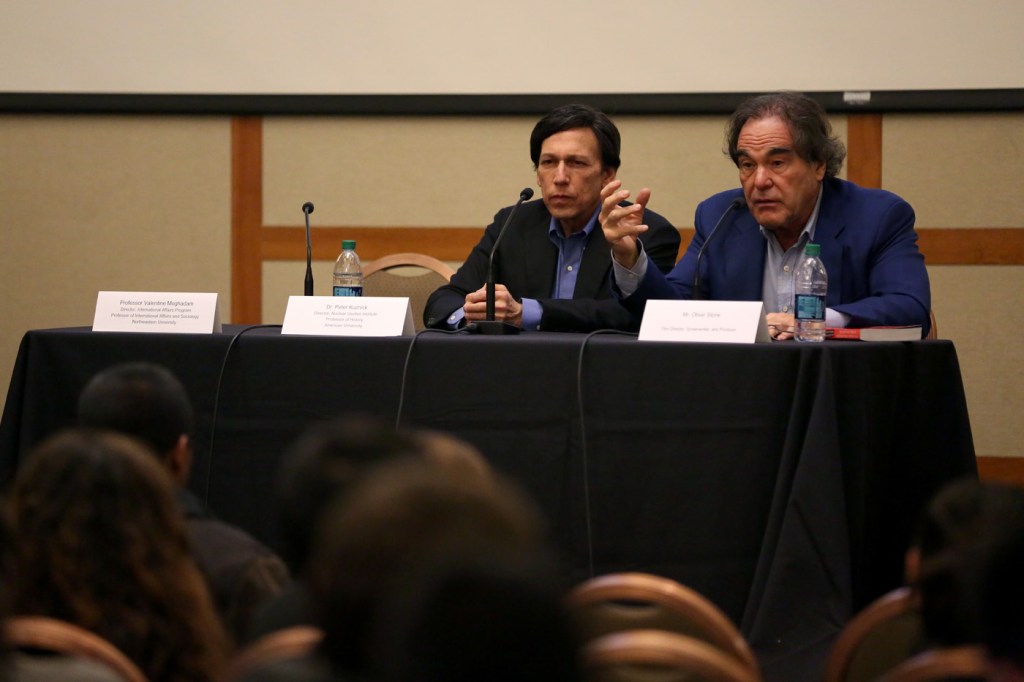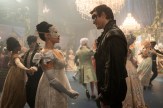4 things we learned from Oliver Stone

Film director and screenwriter Oliver Stone, known for his movies such as Platoon, JFK, and W., visited Northeastern on Monday afternoon to screen an episode from his documentary series The Untold History of the United States and answer students’ questions about the project and his views on American history. The event was presented by the International Affairs Program, the Department of History, and the Northeastern Humanities Center.
Stone was joined by collaborator Peter Kuznick, a professor of history at American University. The pair worked for five years on the series, which aired on Showtime in 2012. The series examines American history beginning in the 1890s and looks specifically at the Cold War, using the atomic bomb against Japan, and America’s global role in recent decades. Here are some takeaways from Stone’s remarks during a Q-and-A session with the Northeastern community.
1. On the motivation to make the documentary: “Inspired by George W. Bush, I felt like we had to look back at American history in my lifetime and try to understand what happened. The series got to this conclusion that George Bush was hardly the aberration I thought he was. He was a continuation of a pattern of American exceptionalism, a will to power, and American intervention in foreign countries that went on from 1898 to the 2000s. So this was an attempt to hopefully bring a number of generations closer to another version of American history.”
2. On the process of making this series: “The process was very long and difficult. At the end of the day, it took two extra years to complete…We really had to focus on what we thought was the big picture. I think this is the way Peter and I strongly feel these 120 years have gone.”
3. On why he believes there is this forgotten narrative of American history: “I don’t think it was forgotten as much as controlled. The forces that won World War II strongly put out media propaganda that the U.S. had won World War II, that we had to drop the atomic bomb on Japan, and there was a necessity for a Cold War with Russia. We go out of our way to deconstruct those myths and from there we shape this narrative that has been controlled for about 70 years.”
4. On how his military service in Vietnam shaped his political views: “I was exposed to a lot of ground warfare, and I saw reality. Prior to that I lived in a myth about war and American rightness. So I think I came back from the war not against America, but shocked. What do you make of a world that goes upside down at 21 years old?”





